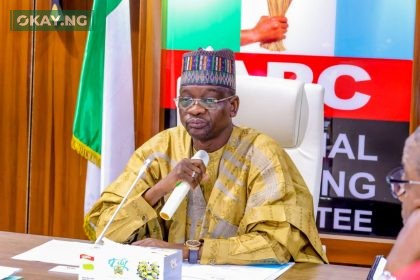A growing movement within the Nigerian real estate sector is advocating for an extension of the validity period for brokerage licenses, from the current annual renewal to a two-year cycle. This push, spearheaded by numerous agents and industry stakeholders, aims to alleviate the perceived excessive regulatory burden and streamline operational processes.
The crux of the agents’ argument centers on the significant time and resources expended annually on license renewal. “The current yearly renewal process places an undue strain on our operations,” stated the National President of The Africa Association of Professional Freight Forwarders and Logistics of Nigeria (APFFLON), Frank Ogunojemite, disclosed this during a recent industry forum. “It disrupts our ability to focus on serving clients and contributing to the growth of the property market.”
This sentiment is echoed by many within the sector, who view the annual renewal as an administrative hurdle that adds little value. The agents propose that a two-year validity period would not only reduce administrative overhead but also align with international best practices observed in similar markets.
“We are not asking for a free pass,” emphasized another agent, “but rather a system that reflects the stability and professionalism of established agencies. A two-year cycle allows for adequate regulatory oversight while minimizing unnecessary disruptions.”
The regulatory bodies, however, are yet to formally respond to these demands. It is understood that they prioritize ensuring compliance and maintaining the integrity of the real estate market. Concerns about potential malpractices and the need for frequent monitoring are often cited as reasons for the current annual renewal policy.
Read Also: CBN Overhauls Crude Oil Terminal Oversight: New Agent Allocations Announced
It is relevant to note that the real estate sector in Nigeria has faced scrutiny in recent years regarding transparency and accountability. 1 A balance must be struck between facilitating ease of operations and ensuring that regulations are adhered to.
The impact of this potential policy shift extends beyond individual agents. It could influence the overall efficiency and attractiveness of Nigeria’s property market, potentially attracting more investment and fostering sustainable growth. For buyers and sellers, this could translate to more streamlined transactions and a more stable market environment.
The push for a two-year license validity reflects a broader desire for a more efficient and supportive regulatory framework will militate the challenges faced by agents in navigating the regulatory landscape.
The outcome of this advocacy remains to be seen. However, the dialogue itself underscores the dynamic nature of the Nigerian real estate sector and the ongoing efforts to enhance its professionalism and efficiency. The coming months will be crucial in determining whether regulatory bodies will heed the agents’ calls for change.













